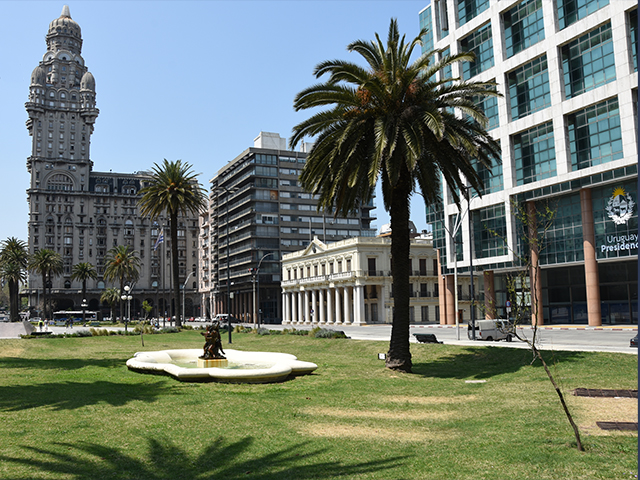At Carlos Picos Consultora we can assist you in evaluating your investment project and managing both its submission and ongoing monitoring.
Uruguay stands out in the region as a reliable and attractive destination for foreign investors.
Among the various facilities are: a free foreign exchange market – no restrictions on the inflow or outflow of capital, the transfer of profits, dividends, interest, etc.; no local counter‑party is required; a unified tax system across the entire territory; the tax system is based on the territorial income principle, which means that, in general, foreign‑source income and assets located abroad are not taxed; and there is no distinction between domestic and foreign capital.
To complement these advantages, Uruguay has developed a solid scheme of fiscal benefits to attract investors. One of the fundamental pillars of this scheme is the Law on Investments (Law 16,906), which since 1988 establishes the legal framework for the promotion and protection of investments made in the national territory by both domestic and foreign investors. The regulations corresponding to the investment regime have been shaped in recent years through various decrees that have adapted the regime and enhanced it with diverse administrative facilities and improvements to the benefits.
The benefits are very significant and widely used by investors, achieving reimbursements of up to 100 % of the invested capital.
What are the benefits and why is it so important to know them when making investments in Uruguay?
Submitting an investment project can be a very significant opportunity for both domestic and foreign investors aiming to establish an activity in Uruguay in accordance with Law 16,906—entitling them to tax benefits ranging from 30 % to 100 % exemption on the total investment, with applicability spanning between 4 and 25 years.
The Investment Law (Law 16.906) and Decrees 143/018 and 268/020 grant tax benefits to corporate income tax (IRAE) ‑paying companies that make investments within Uruguayan territory.
The regulation seeks to enhance developmental impact and generate a positive effect on the added value of the economy.
The promotional declaration may apply to a specific sectoral activity—understood to mean the group of enterprises aimed at producing, marketing, or providing, as applicable, specific goods or services. A set of objectives is established, which are weighted with a score from 0 to 10 according to the following table.

Optimizations were introduced in the weightings of the indicators in the objectives matrix in order to stimulate investment growth, placing emphasis on job creation.
The following investments are accepted:
- Tangible movable assets directly used in the Company’s activity. Each asset must have a minimum total acquisition value of UI 500 (five hundred Indexed Units). These may include, for example, machinery, equipment, tools, utility vehicles, electric vehicles (utility and passenger), livestock‑farming installations, and other related installations. Residential property and certain types of non‑utility vehicles are excluded.
- Investments in civil works, as well as fixed improvements to real estate. If such improvements are carried out on leased property, the lease agreement must have a remaining term of at least three years at the time of submitting the application.
- For forestry investments, eligible expenditures include the purchase of seedlings and the costs of planting multi‑year fruit trees and shrubs.
The following taxes are exempted in an approved investment project:
- Exemption from the Corporate Income Tax (IRAE).
- Exemption from the Wealth Tax (IP).
- Refund of the Value Added Tax (IVA).
- Exemption from import duties and taxes.
The company may benefit from tax exemptions on the investments effectively made, starting from the fiscal year in which the project is submitted, provided the company has generated net taxable income.
The following benefits were introduced with the enactment of Decree No. 268/020:
- The minimum exemption was increased from 20% to 30% of the eligible investment.
- The option to be evaluated using a simplified matrix based on the employment generation indicator was introduced.
- The minimum exemption period was extended from 3 to 4 fiscal years.
- The required weekly working hours to qualify as a full-time position were reduced from 40 to 30 hours.
- The weighting of the Employment Generation and Export Increase indicators was increased.
- The exempted IRAE can reach up to 90% of the payable tax.
- Small businesses may receive an additional 10% IRAE benefit.
What percentage of tax exemption is possible?
Answer: Depending on the score awarded (0–10) according to the evaluation matrix, projects can obtain between 30% and 100% exemption from IRAE, with coverage periods ranging from 4 to 25 years.
How long does the process take?
From the project’s submission, authorities have a 90-business-day window to issue the resolution declaring the initiative as a promoted project. This timeframe may be suspended if additional information is requested from the company — however, the cumulative suspension cannot exceed 90 business days. If the full period elapses without a resolution, it is presumed that the Executive Branch recommends awarding the benefits.
Can both natural persons and legal entities participate?
Yes. Domestic companies, multinationals, or individual investors may submit projects. Tax residency is not required to apply, although planning both legal‑and‑tax residence can be advantageous if you’re seeking exemption on foreign‑source passive income or intending to establish legal or fiscal residence.
How is compliance monitored?
Supervision will be conducted to ensure the actual implementation of the projects and fulfilment of the commitments made by the beneficiaries. This oversight may occur at any stage during the project’s execution or operational phase. If non‑compliance with the beneficiaries’ obligations is detected during monitoring, the previously exempted taxes will be recomputed.
Our specialists will analyse your case to craft and submit your project in the most efficient manner for your business. Contact our experts.



